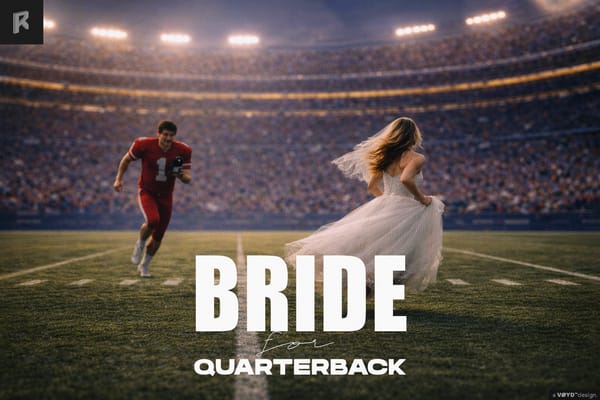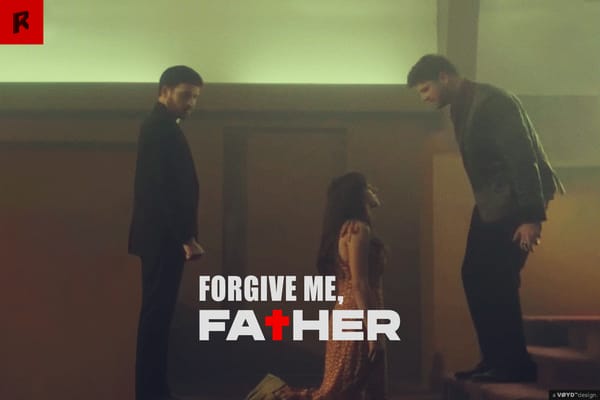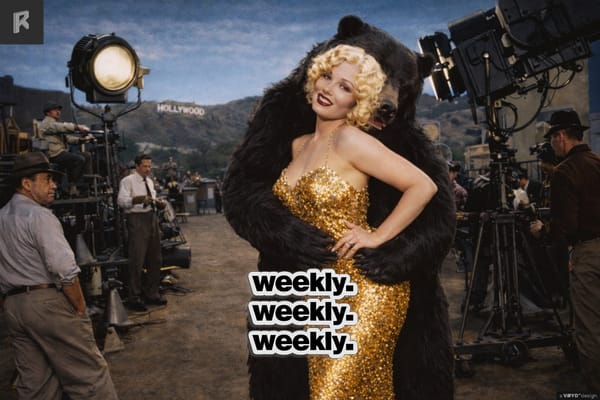Vertical Drama Review: Miss You After Goodbye
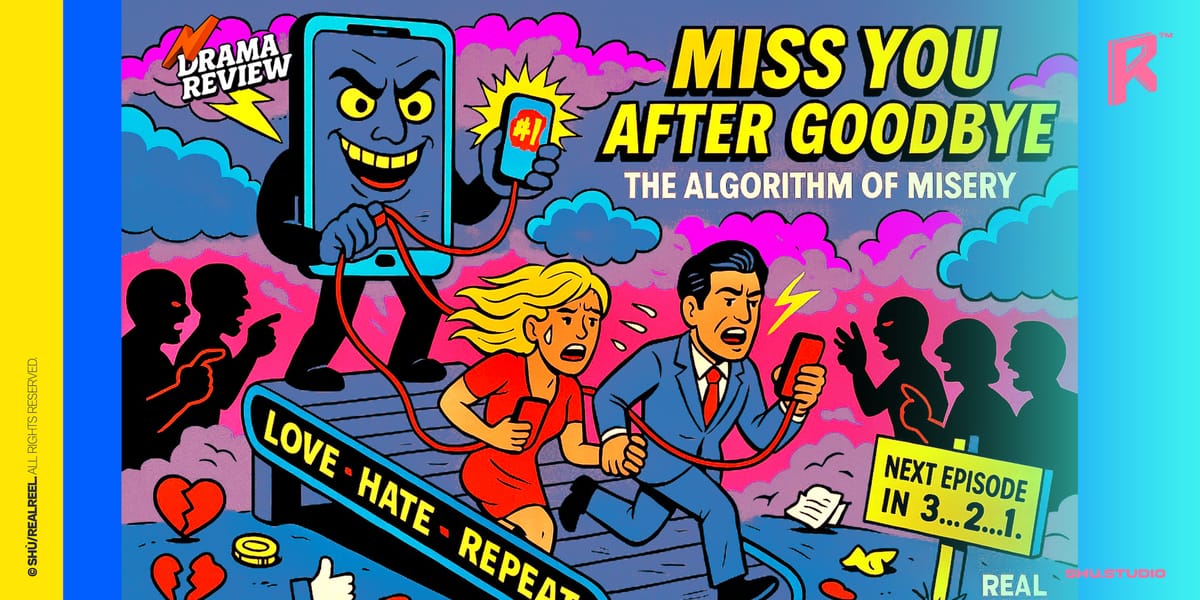
⚈ ⚈
Watching Miss You After Goodbye felt like swallowing glass. Within a few episodes, I wasn’t just annoyed and then physically uncomfortable.
My body wanted to quit, but my duty as a reviewer chained me to the screen.
Join Real ReelWhat followed was a bizarre emotional rollercoaster: first nausea, then unintentional laughter, and finally, a wave of depression. Not because the drama was moving, but because it exposed just how hollow the vertical drama market has become.

What the Show Pretends to Be
Right now, Miss You After Goodbye is everywhere. It’s #1 on both ReelShort and DramaBox, a Top 3 hit on GuangDaDa’s monthly ranking, and burning up at least three other platforms. On paper, the setup sounds like a sure bet:
A dutiful male lead signs a contract marriage with the heroine, sacrificing his own life to honor her father. He gives up his career, his pride, his future. Meanwhile, the female lead clings to her toxic ex, listens to manipulative friends, and spends the series mistreating the very man who’s holding everything together.
Sounds dramatic. Could be compelling. Instead, it’s just exhausting.
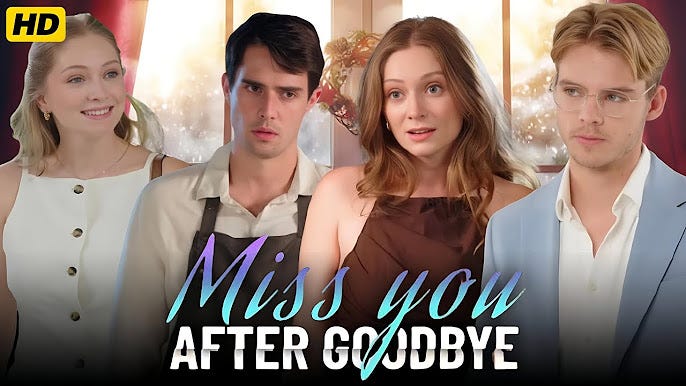
A Scene That Sums It All Up
Picture this:
The male lead, desperate, insists: “I never betrayed you. Everything I’ve done has been for us.”
The female lead cuts him off: “You’ll never measure up. Simon would’ve done better.”
Cue the backup chorus — side characters jumping in like vultures. “See? He’s lying. He’s worthless.”
The hero tries again, voice cracking, “That’s not true — ”
Shut down.
Another accusation. Another slap.
The camera lingers on his pain, the editing ramps up, the villains sneer, and the audience is left clenching their fists. It’s not catharsis. It’s not tragedy. It’s emotional suffocation, recycled on a loop.

The Experience of Watching
At first, I was genuinely uncomfortable. The nonstop gaslighting and verbal abuse created a physical reaction: tight chest, pounding temples. Then, around the midpoint, the absurdity tipped over into unintentional comedy. I found myself laughing at how shamelessly the script recycled the same beat: explanation → interruption → denial → escalation. Over and over, until the entire show became a parody of itself.
But then I remembered the rankings. ReelShort #1. DramaBox #1. GuangDaDa Top 3. And suddenly, the laughter died. If this is what the market rewards, what does that say about the state of vertical drama?

What’s Really Going On
This isn’t a drama. It’s an assembly line. Every episode is engineered as a marketing clip, portable outrage, ready to bait audiences. The villains don’t think, they provoke. The hero doesn’t grow, he absorbs punishment. The “plot” is just an endless treadmill of humiliation.
And the cruel irony? It works. Rage-bait keeps people watching. Outrage keeps them paying. Hate-watching still counts as engagement. The platforms know this, and so they feed us a diet of emotional junk food.
For Writers: The One Takeaway
If there’s anything to salvage here, it’s this: emotion sells. Even bad emotion. Anger, frustration, humiliation, they all keep audiences hooked. That’s the sliver of craft to study.
But beyond that? Miss You After Goodbye is a cautionary tale. It shows how quickly storytelling can collapse when every decision serves the algorithm instead of the audience.
Final Word
Miss You After Goodbye left me sick, then laughing, then depressed. None of it was intentional, and none of it was art. The fact that it dominates multiple platforms isn’t a victory, it’s a warning flare.
If this is the kind of content that defines the future of vertical drama, then the “goodbye” in the title isn’t just for the characters. It might be for storytelling itself.
★★½☆☆




